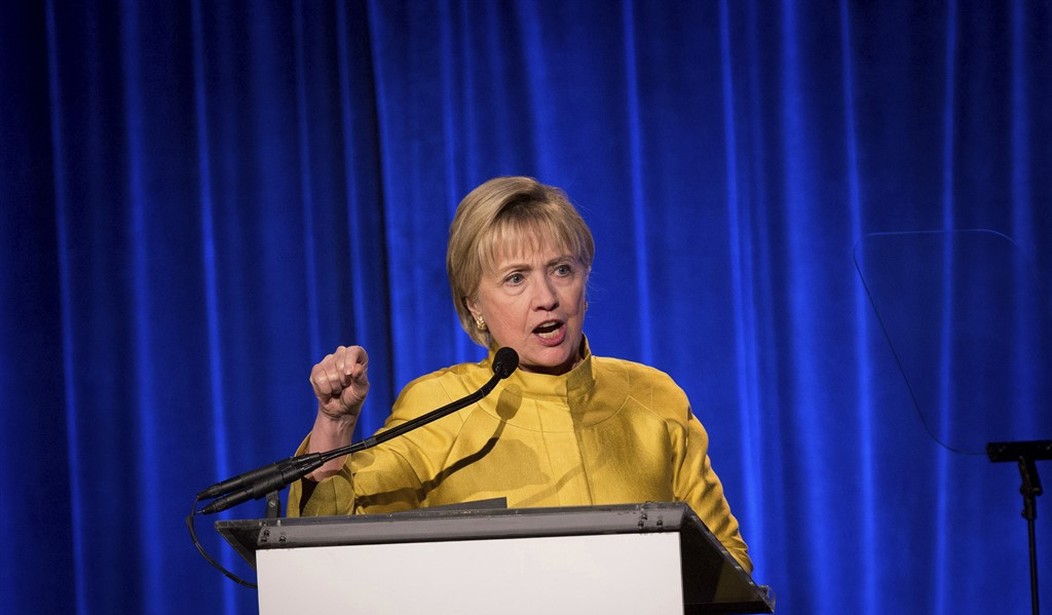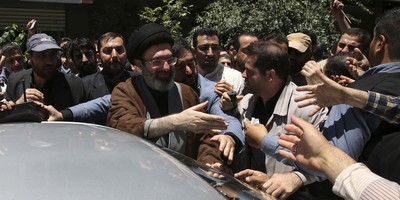While we're examining the accomplishments of Donald Trump's first hundred days -- putting his man on the U.S. Supreme Court is the biggie -- Hillary Clinton is getting the once-over (and the second and third) for all the reasons why she's not the first woman to preside over her first hundred days in the Oval Office.
She never understood that "the fault, dear Hillary, is not in the stars, but in yourself."
In "Shattered: Inside Hillary Clinton's Doomed Campaign," the book Washington, D.C., is talking about, Jonathan Allen and Amie Parnes write a sweeping drama with lots of supporting actors strutting across the stage. The characters are worthy of the Bard. It's a tale told not in the poetry of Elizabethan tragedy but as a comedy or farce.
When the curtain finally falls on election night, there are no dead bodies to drag off stage, but lots of Machiavellian characters litter the landscape, muttering asides and revealing dark insights into behind-the-scenes machinations. The cast includes a husband with no "impulse-control button" and enough jesters, fools and sycophants to destroy the myth of the irresistible Hillary Juggernaut that was ordained to elect the first woman president of the United States.
In one richly farcical case of mistaken identity, an aide misunderstands the name of the interviewer Clinton wanted for her first television interview. She said she wanted Bianna, meaning Bianna Golodryga of Yahoo! News, the wife of Peter Orszag, a onetime economic adviser for President Bill Clinton whom she considered friendly and deferential. The aide thought she meant Brianna, as in Brianna Keilar, and that's who got the live interview for CNN. She asked tough questions about Hillary Clinton's infamous email server.
Recommended
Clinton grew defensive, especially when she was asked, "Would you vote for someone that you didn't trust?" This was a classic softball, which someone at ease with the press might have knocked out of the park. Instead, Clinton glared daggers at Keilar and replied, as if in a sulk, "People should and do trust me." The lady doth protest too much, methinks -- and so did much of the national audience.
Such insights, errors and sloppy work dogged her throughout the campaign, and this after-the-fact focus in this season of her discontent shows her to be the culprit in her demise. "Shattered" suggests why a recent Washington Post-ABC News poll suggests that President Donald Trump, despite low approval ratings, would still defeat Clinton today -- 43 percent saying they would vote for the Donald, and 40 percent for the Lady Macbeth of Little Rock. A remarkable 96 percent of Trump voters say they would vote for him again, and only 85 percent of Clinton voters would still vote for her.
Richard Nixon might have felt at home in the Clinton bunker. After her 2008 loss to Barack Obama, Clinton aides reportedly assigned loyalty scores to members of Congress, from one to seven. A score of one reflected high loyalty; seven signified likely to commit "egregious acts of treachery." Such expectations of disloyalty terrified everyone in the bunker.
Donald Trump, by contrast, inspires a different kind of loyalty. His supporters stick with him despite his evident flaws, his angry tweets and his anger that can go public in an instant. They nevertheless believe he's got their back. There's no mushy empathy like the Clintons' phony assurance that "we feel your pain." The president's fans don't like some of the things he's done but still think he'll deliver on his promise to bring about change and destroy the establishment of the elites that has grown fat and stale, surviving long past its sell-by date.
In town halls during spring break, many voters vented anger at congressmen for their support of the president. But Sen. Joni Ernst of Iowa, as typical of the president's loyal friends in Congress, offered a defense. "We'd be hard-pressed to find a president who doesn't have flaws," she said. "I support a majority of the policies versus the actual person." A Bubba defender couldn't have said it better.
Hillary Clinton has yet to measure the man or understand the "ordinary" men and women who stand with the president. When her aides were preparing her for one of the debates and had to choose someone to play the Donald, casting was a problem because the campaign didn't want a "Saturday Night Live" imitation but someone to rattle and annoy her. Anthony Weiner, the sexting husband of Clinton aide Huma Abedin, was suggested. But Philipe Reines, a senior aide with an acid tongue and a reputation for rudeness, was selected. He helped her to an unflappable debate performance but couldn't do anything about the schoolmarm style that turned off the millions. Hillary Clinton is a woman of many gifts but not what the poet Bobby Burns described as the gift "to see ourselves as others see us." It was the fatal flaw.

























Join the conversation as a VIP Member